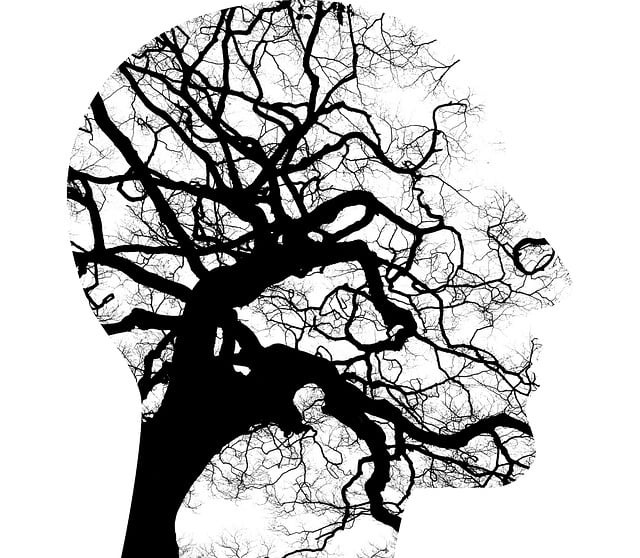Healthcare provider burnout, a significant concern, impacts patient care and systems globally, with unique challenges for French-speaking adults. Prevention strategies focus on cultural sensitivity, trauma support, resilience building, and empathy-focused interventions to enhance well-being. Tailored initiatives like Therapy for Adults French Speaking programs improve patient-provider relationships, reduce language barriers, and foster compassionate care. Lifestyle changes, including CBT and mindfulness, along with public awareness campaigns, promote holistic stress management. Evidence-based therapies and integrated support systems, such as peer groups and mentorship, are vital for burnout prevention among French-speaking therapists, ensuring better mental health outcomes for both providers and patients.
Healthcare provider burnout is a growing concern, impacting not just individuals but the overall quality of patient care. This article delves into effective strategies to prevent burnout among healthcare workers, focusing on the unique challenges faced by French-speaking adults. We explore causes, from workplace culture to workload stress, and provide solutions including evidence-based therapies like Cognitive Behavioral Therapy (CBT), mindfulness techniques, lifestyle adjustments, and building robust support systems. Key topics cover cultural sensitivity and the role of peer groups in fostering a healthier work environment for therapy for adults French speaking.
- Understanding Burnout Among Healthcare Providers: Causes and Impact
- The Importance of Cultural Sensitivity in Burnout Prevention for French-Speaking Adults
- Lifestyle Changes to Combat Stress and Fatigue
- Evidence-Based Therapies for Burnout Relief: Cognitive Behavioral Therapy (CBT) and Mindfulness Techniques
- Building Support Systems: Peer Groups, Mentorship, and Professional Resources
Understanding Burnout Among Healthcare Providers: Causes and Impact

Healthcare provider burnout is a growing concern within the medical field, impacting not only individual practitioners but also patient care and overall healthcare systems. Burnout occurs when healthcare providers feel emotionally drained, detached from their work, and unable to cope with the demands of their profession. This state often arises from prolonged exposure to stressful situations, high workload, and a lack of support. Among French-speaking adults in therapy, burnout is not merely an individual struggle but a complex issue influenced by cultural factors, language barriers, and unique challenges within healthcare systems.
The causes are multifaceted, encompassing a range from heavy patient loads and long working hours to insufficient resources and a perceived lack of appreciation. The impact of burnout extends beyond the provider, affecting patient outcomes, team dynamics, and the overall culture of healthcare institutions. Effective prevention strategies are crucial, focusing on trauma support services, resilience building, and empathy-focused interventions to foster a supportive work environment. These initiatives aim to enhance coping mechanisms, promote well-being, and create a sense of community among healthcare providers.
The Importance of Cultural Sensitivity in Burnout Prevention for French-Speaking Adults

In the context of healthcare provider burnout prevention, cultural sensitivity plays a pivotal role, especially when catering to French-speaking adults. Burnout rates among healthcare workers are significantly influenced by their ability to connect with diverse patient populations, including those from French-speaking backgrounds. The nuances of language and culture can impact patient-provider relationships, access to care, and ultimately, mental wellness. Therefore, integrating cultural sensitivity into burnout prevention strategies for French-speaking adults is essential.
Therapy for Adults French Speaking, along with Mental Health Education Programs Design, Crisis Intervention Guidance, and other tailored initiatives, can help healthcare providers navigate these complexities effectively. By promoting understanding of French-speaking patients’ unique perspectives, values, and communication styles, healthcare professionals can enhance their ability to provide compassionate, culturally competent care. This, in turn, fosters stronger patient connections, reduces burnout risk, and promotes positive mental health outcomes for both caregivers and those they serve.
Lifestyle Changes to Combat Stress and Fatigue

In the realm of healthcare provider burnout prevention strategies, lifestyle changes play a pivotal role in combating stress and fatigue. Incorporating regular physical activity, maintaining a balanced diet, and prioritizing adequate sleep are fundamental pillars that support mental and emotional well-being. For French-speaking adults seeking additional tools to manage stress, therapy can be a powerful ally. Cognitive-behavioral therapy (CBT), for instance, aligns with the Mind Over Matter principles by teaching coping mechanisms and reframing negative thoughts, which are particularly effective in combating burnout.
Public awareness campaigns development should also emphasize these lifestyle changes as part of an integrated approach to burnout prevention. By promoting balanced lifestyles through education and support systems, healthcare providers can enhance their resilience and overall satisfaction. This multifaceted strategy not only benefits individual practitioners but also contributes to a more sustainable and compassionate healthcare system.
Evidence-Based Therapies for Burnout Relief: Cognitive Behavioral Therapy (CBT) and Mindfulness Techniques

Many healthcare providers struggling with burnout can find relief through evidence-based therapies like Cognitive Behavioral Therapy (CBT) and mindfulness techniques. CBT helps adults French-speaking professionals identify and change negative thought patterns that contribute to stress and exhaustion, fostering a more positive mindset and enhanced coping mechanisms. These strategies empower them to manage overwhelming workloads and emotional demands while cultivating resilience.
Mindfulness practices, on the other hand, teach present-moment awareness and non-judgmental acceptance, enabling healthcare providers to detach from stressful situations and reduce rumination. Integrating mindfulness into daily routines can improve emotional regulation, increase job satisfaction, and strengthen cultural competency training for better patient care—a key aspect of burnout prevention strategies, alongside empathy building techniques.
Building Support Systems: Peer Groups, Mentorship, and Professional Resources

Building support systems is a vital aspect of preventing burnout for healthcare providers, especially those who offer therapy for adults speaking French. Peer groups provide a unique space where professionals can connect, share experiences, and offer mutual support. These groups foster a sense of community, allowing individuals to express challenges and gain insights from peers facing similar struggles. Mentorship programs are equally beneficial, pairing experienced therapists with newcomers to facilitate knowledge transfer and emotional healing processes. Having access to seasoned mentors who understand the nuances of the French-speaking therapy landscape can significantly enhance practice and resilience.
Professional resources in the form of workshops, seminars, and online forums further enrich support systems. These platforms often offer practical guidance on communication strategies, a key component in addressing burnout. Encouraging therapists to engage in mental wellness journaling exercises can also be therapeutic. Journaling provides an opportunity for self-reflection, helping professionals process their experiences, identify triggers, and explore effective coping mechanisms. By incorporating these support systems, healthcare providers can maintain a healthy work-life balance while delivering quality care to French-speaking adults in need of therapy.
Healthcare provider burnout is a pressing issue, particularly within diverse communities like those with French-speaking adults. By combining cultural sensitivity, lifestyle adjustments, evidence-based therapies such as CBT and mindfulness, and robust support systems, we can create a more sustainable and fulfilling work environment for healthcare providers. These strategies not only alleviate burnout but also improve patient care and overall well-being in diverse populations, including those with distinct linguistic backgrounds. Incorporating these practices is essential to ensure the long-term health and resilience of our healthcare workforce.












